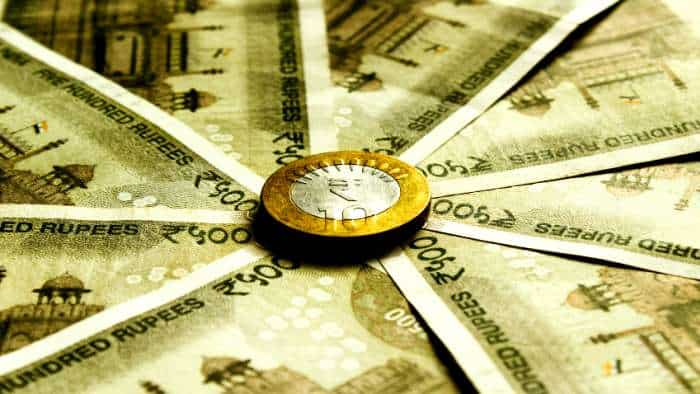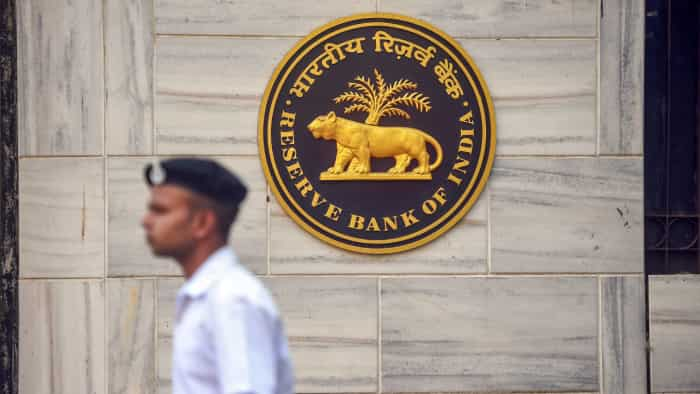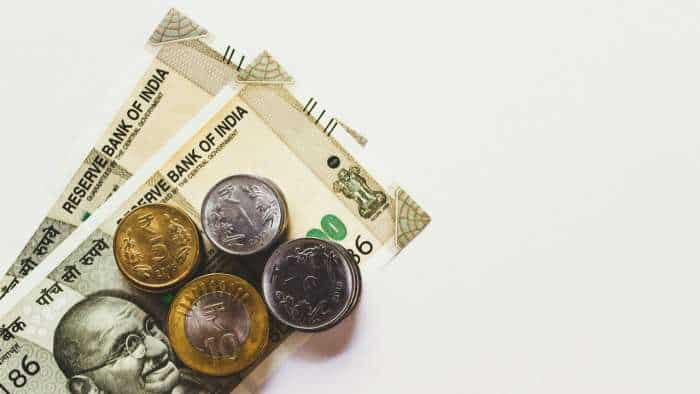Central Bank Digital Currency: What is digital rupee? How it differs from physical notes, cryptocurrency - experts explain
Digital rupee: This digital rupee can be exchanged for cash, equivalent to the banknotes that central banks like the RBI issue in paper form. The RBI will continue to issue the CBDC, which will serve the same function as banknotes but is not a decentralised asset like cryptocurrencies.

Digital rupee: The Reserve Bank of India (RBI) on Tuesday (November 1) launched India's first digital rupee pilot project for the wholesale segment. Digital rupee (e₹), also known as Central Bank Digital Currency (CBDC), is a digital form of currency notes issued by the central bank, Reserve Bank of India. It is substantially not different from banknotes, but being digital it is likely to be easier, faster and cheaper. It also has all the transactional benefits of other forms of digital money.
What is Digital rupee?
Rachit Chawla, CEO Finway FSC said, Digital currency is basically payment systems which involve digital transactions in electronic form and is not physically tangible like rupee. The Reserve Bank of India (RBI) has launched its pilot project on digital rupee from 1 November."
"The digital rupee ideated by RBI will be generated through an advanced payment system which is affordable, accessible, convenient, efficient, safe, and secure and aims at further bolstering the digital economy. However, it should be noted that the concept of initiating digital currency is only to complement the existing forms of financial transaction and not replace them. It will provide users with an additional option for making payments, while the existing payment system is still on place. Hence, it can be safely stated that digital currency will have no affect on the general currency usage," he added.
Digital rupee (e₹) will be used for issuing virtual currency for transactions in government securities. The money will be in virtual form just like other cryptocurrencies but the digital rupee will not be decentralised, it will be regulated by the Reserve Bank of India (RBI).
The digital rupee will be completely legal and acceptable to the Indian Government. The launch is being carried out in two phases. This is the first pilot phase where the digital rupee has been launched for wholesale transactions i.e. for large transactions.
How digital rupee is different from crypto currency?
Mahesh Shukla, CEO & Founder PayMe said, "There is no direct comparison between the CBDC (Central Bank Digital Currency) and cryptocurrency because the digital rupee is not a commodity or virtual asset, contrary to cryptocurrencies. Moreover, crypto coins are not exactly money."
This digital rupee can be exchanged for cash, equivalent to the banknotes that central banks like the RBI issue in paper form. The RBI will continue to issue the CBDC, which will serve the same function as banknotes but is not a decentralised asset like cryptocurrencies.
What's the difference between the two?
Rachit Chawla from Finway FSC noted, "While both digital currency and crypto currency involve online modes of transaction, there are slight differences between the both. Central Bank Digital Currency (CBDC) refers to the digital form of a country’s fiat economy, while crypto currencies are an alternative form of payment with unique algorithm. The digital currencies can be called the country’s digital fiat and the crypto currencies are digital assets in a decentralized network. On the other hand, while the digital currencies are entirely regulated by the central bank and the government who set value of the currency, crypto currency’s value is independent of central banking authorities and follows a transparent procedure from mining to ownership to transfer of assets."
Objective of launching Digital Rupee?
The Reserve Bank of India (RBI)'s prime objective for launching the pilot project on the digital currency is to advance India in the race for virtual currencies. This is also because crypto currencies are becoming more and more popular.
Rachit Chawla noted that the launch will undoubtedly change the game since the digital rupee will improve efficiency and transparency because of the application of blockchain technology. Additionally, blockchain will make ledger upkeep and real-time tracking possible.
Both wholesale and retail customers will have constant access to the payment system. Indian customers can pay directly, saving transaction costs and enabling real-time account settlements. Additionally, using a digital rupee will speed up cross-border transactions and eliminate the need to open a bank account.
Mahesh Shukla, CEO & Founder PayMe added "This will also help direct payments from Indian customers, reducing transaction costs and enabling real-time account settlements. A digital rupee will expedite cross-border transactions and remove the requirement for opening a bank account."
Impact of the Digital Rupee on Businesses?
Gaurav Bhagat, Business Coach and founder Gaurav Bhagat Academy (GBA) said, "The wholesale CBDC has the potential to transform the settlement systems for transactions and make them even more feasible for users. This will also bolster the country’s overall digital economy and bring in more financial inclusion. Soon, the reserve bank will make available the CBDC for the retail sector too. Furthermore, the use of the digital rupee will speed up cross-border transactions, even for users linked to a particular bank account."
Reserve Bank of India (RBI) launching the pilot project on Central Bank Digital Currency (CBDC) from 1 November 2022 is projected to make the interbank market more efficient and secure.
As stated by the apex bank, the move will reduce transaction costs by preempting the need for settlement guarantee infrastructure or for collateral to mitigate settlement risk. CBDC can be classified into two basic categories –retail CBDC and wholesale CBDC.
Initially, the RBI rolled out digital currencies for the wholesale sector. The central bank has ideated wholesale CBDC for the settlement of interbank transfers and related transactions.
Nine banks participate in wholesale pilot project
RBI has selected nine banks for participation in the digital rupee's wholesale pilot project. These are State Bank of India, Bank of Baroda, Union Bank of India, HDFC Bank, ICICI Bank, Kotak Mahindra Bank, Yes Bank, IDFC First Bank and HSBC.
The launch is being carried out in two phases. This is the first pilot phase where the digital rupee has been launched for wholesale transactions i.e. for large transactions. The RBI will follow up on the wholesale e-rupee pilot with a similar trial on the retail side this month itself.
Also Read | Salary account holders ALERT: 10 benefits and features that you may not know
Get Latest Business News, Stock Market Updates and Videos; Check your tax outgo through Income Tax Calculator and save money through our Personal Finance coverage. Check Business Breaking News Live on Zee Business Twitter and Facebook. Subscribe on YouTube.
RECOMMENDED STORIES

SBI 2222-Day Green Deposit FD vs Central Bank of India 2222-Day FD: What will you get on Rs 4,44,444 and Rs 7,77,777 investments in these special FD? Know here

RBI Rule: New system for online money transfers to be implemented from April 1, 2025; here's all you need to know
08:56 PM IST









 Rupee may depreciate 8 to 10% during Trump 2.0 says SBI report
Rupee may depreciate 8 to 10% during Trump 2.0 says SBI report Rupee stays unchanged at 84.07 against US dollar
Rupee stays unchanged at 84.07 against US dollar Rupee gains by 7 paise to end at 83.30 against US dollar
Rupee gains by 7 paise to end at 83.30 against US dollar ICICI Bank customers can now make payments to merchant QR code using digital rupee app
ICICI Bank customers can now make payments to merchant QR code using digital rupee app  Rupee vs Dollar: Rupee settles 2 paise lower at 83.26 against US dollar
Rupee vs Dollar: Rupee settles 2 paise lower at 83.26 against US dollar